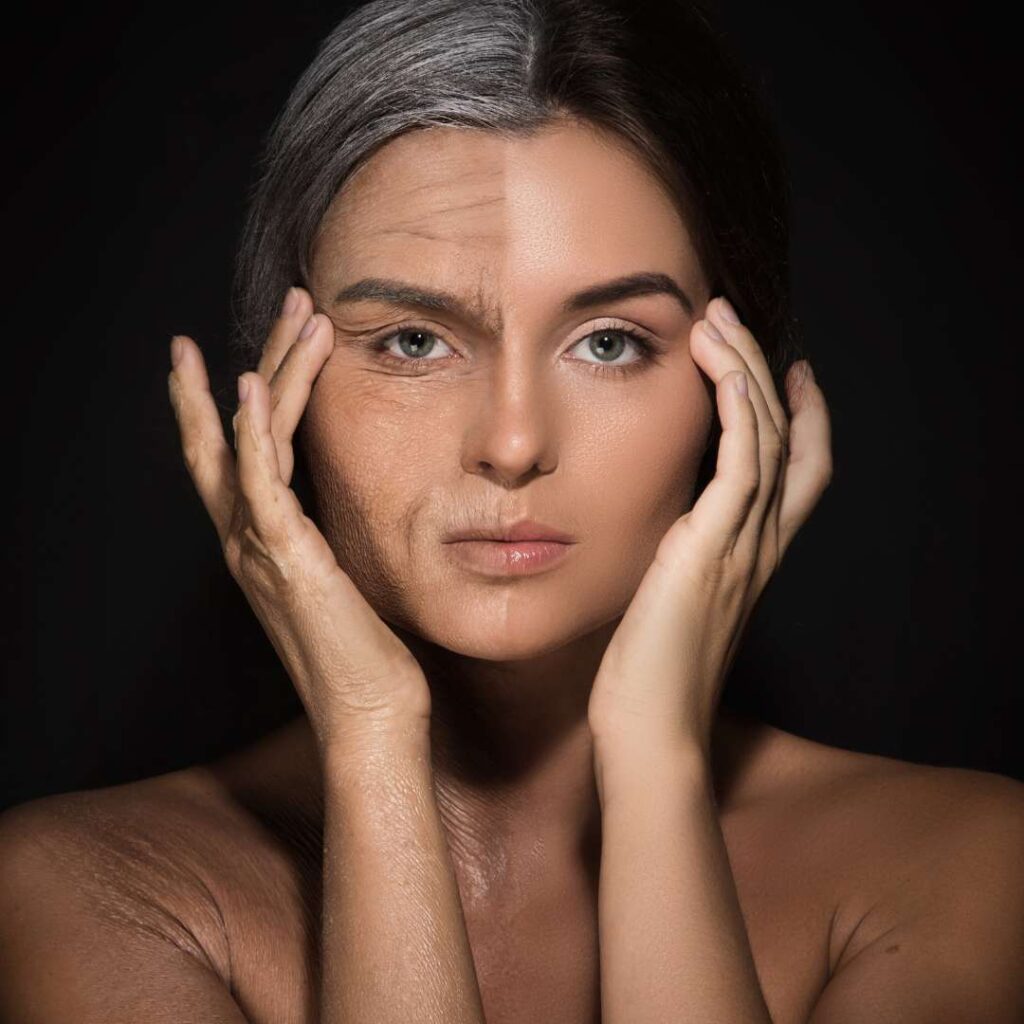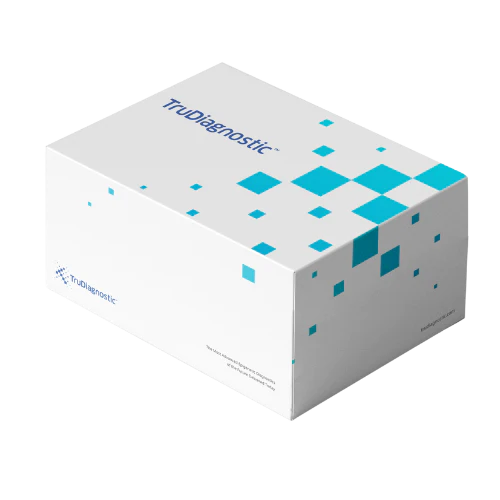What’s Your Biological vs. Chronological Age?
This blog post has been reviewed and approved by Dr. Baxter- Longevity Specialist
So, what’s your biological vs. chronological age? Let’s learn how you can be tested and how it can help you live even longer.
Age, a mere number, right? But here’s the twist: your birth certificate says 50, yet your blood test insists you’re more like a youthful 40. Or maybe it’s the other way around. Join me in exploring the intriguing contrast between chronological age and what our blood tests reveal about our biological age.
In this post reveal some exciting news in the longevity world. How you can now find out what your biological vs. chronological age? It’s the latest in longevity science.
A simple blood test recently revealed my true biological age. I was thrilled to find out that my biological age was 9 years younger than my chronological age. How can that be?
In this blog post we will explore the difference between chronological and biological age and what science can now tell us about how we are aging.

Chronological and Biological Age
Biological age, also known as physiological age, reflects the actual condition of an individual’s body at the cellular and molecular levels.
- Dynamic Measure: Unlike chronological age, biological age is dynamic and can be influenced by various factors, including genetics, lifestyle choices, and environmental exposures.
- Insights into Health: Biological age provides insights into the health and vitality of tissues and organs, considering factors such as DNA methylation, epigenetic changes, and cellular aging.
- May Differ from Chronological Age: A person’s biological age may differ from their chronological age. A person may age faster or slower based on their lifestyle and genetic factors.
If your biological age is higher than your chronological age, this would indicate that you are aging at an accelerated rate, which in turn means that you are likely to have both a shorter life expectancy and be more likely to suffer from age-related diseases.
Understanding Biological Age:
The biological age, also called the physiological age or the functional age, represents the health and vitality of an individual. Unlike chronological age, which is fixed, biological age is dynamic and can be influenced by various factors.
The aging process is complex and involves a multitude of interconnected mechanisms, including DNA methylation, epigenetic changes, and cellular aging.
To accurately determine one’s biological age, scientists have developed a range of biological aging tests to measure biological age. These tests utilize advanced technologies, such as epigenetic clocks and DNA methylation analysis, to assess the state of cells and tissues.
Tallying health indicators (measure biological age) at the molecular level allows for a more precise understanding of the aging process and the potential risks of age-related diseases.

Measuring Your Biological Age
Your biological age is not the same as your chronological age. Today, it is now possible to be tested to see what your true biological age is compared to your chronological age.
So why is this a good thing? The answer lies in learning how your body is aging. If we know how we are aging, we can change our lifestyle to slow down the aging process.
I’ve actually taken this test! Dr. Baxter, a renowned Plastic Surgeon and Longevity Specialist, conducted my blood test to provide a more in-depth analysis of my overall aging process.
Biology vs Birthday- The aging process
The results are so fascinating and helpful for me to determine what I can do to slow down the aging process with the guidance of Dr, Baxter.
When you think about it, most people have no idea how they are aging. We can see physical aspects, but what’s more important is what is going on inside our cells and bodies.
This is what a TruAge test will tell you:
✓ OMICm Age Report
✓ Pace of Aging Report
✓ Fitness Report
✓ Immune Report
✓ Telomere Length Report
✓ Weight Loss Response Report
✓ Alcohol Consumption Report
Likely hood of getting cancer
✓ Smoke Exposure Risk Report
✓ Research-Backed Ways To Improve Your Aging

Epigenetic Age Test– How Old Are You Really?
An Epigenetic Age Test is a cutting-edge assessment that examines the biological age of an individual based on epigenetic markers. Epigenetics refers to modifications in gene activity that do not involve changes to the underlying DNA sequence.
This state-of-the-art technology is designed to elevate the quality of life for patients by providing unprecedented biological insights. Empowered with this information from the epigenome, individuals can make informed decisions about their lifestyle and medical choices.
Functioning as the operator for your genetic hardware, our software utilizes a straightforward blood sample to unveil critical details about your DNA’s aging process.

TruDiagnost Test
The TruDiagnostic test not only determines whether your DNA is aging at an accelerated or decelerated rate but also provides essential metrics regarding your biological age, the current status of your immune age, and the rate of your ongoing biological aging.
When your body is aging faster than the calendar’s progression of time, you are experiencing accelerated biological aging; the #1 predictor of chronic disease says TruDiagnostic.
Armed with this comprehensive information, Dr. Baxter can tailor specific treatments, procedures, or medications to address precisely the areas where your body requires the most support.
The TruDiagnostics Epigenetic Age Test is a powerful tool, bridging the gap between scientific advancements and personalized healthcare, ultimately enhancing the overall well-being of individuals.
Epigenetic Clocks and DNA Methylation:
The epigenetic clock measures changes in DNA methylation patterns. These changes can be indicative of accelerated cellular aging or, conversely, a slower aging process. By analyzing epigenetic markers, scientists can gain insights into the impact of lifestyle choices, environmental factors, and genetics on the aging trajectory.
How do you get tested for biological age?
In order to determine your physical age, several companies now offer free samples of your blood or saliva. Experts caution that epigenetic clocks cannot really give us any insight to how well we are.
I suggest you go to a specialist like I did with Dr. Baxter. You will need someone to help walk you through your report after you get it.
There are many companies now offering a biological age test that is sent to a special lab to be evaluated. Soon enough, this process will be commonplace for our health and well-being.
The test I had done was a blood test. This type of test examines common age-related biomarkers. This includes testing your telomere length. Collectively, these results can then be used to calculate your biological age.
In this blog post, we will explore the fascinating realm of aging, discussing the significance of biological age, the methods to measure it, and the impact of lifestyle choices on the aging process.
Multiple Tests for a Comprehensive Picture:
One test cannot provide a complete picture of biological age because it is a multifaceted concept. Researchers recommend using multiple tests to get a comprehensive assessment.
These tests may include blood tests, cheek swabs, and lifestyle assessments. The integration of data from various sources enhances the accuracy of determining one’s current biological age.
Can you reverse your biological age?
Studies suggest that you can reverse your biological age. This is exciting news friends!
Exciting findings from recent research show that by tweaking your diet, sleep, and exercise routine, along with incorporating relaxation exercises and supplements, you could potentially reverse the aging process.
It’s possible to start to reverse your biological age in as little as eight weeks.
In an eight-week program involving six women (ages 46 to 65), blood tests showed a notable reduction in biological age, with an average decrease of 4.6 years.
Based on the findings of the March study published in Aging, these changes appear to have a significant impact, considering that participants had an average chronological age of 58 at the beginning, and all but one had a younger biological age. This implies that the reduction in biological age was likely not solely due to improvements in underlying diseases.
The Role of Lifestyle Choices:
It makes sense that lifestyle habits play a pivotal role in influencing biological age.
Diet, exercise, sleep patterns, and stress management can significantly influence aging. We already know that by avoiding smoking and alcohol can accelerate aging and increase the risk of various diseases.
Making educated decisions about lifestyle choices, such as practicing caloric restriction and adopting healthy habits, may contribute to maintaining a younger biological age.
Notable Figures in Aging Research:
Renowned scientists like Dr. David Sinclair have dedicated their careers to unraveling the mysteries of aging. His work has led to groundbreaking discoveries on how lifestyle changes and environmental factors affect the aging process. By understanding these mechanisms, we can make informed decisions to promote longevity and overall health.
As we go through life, the difference between our chronological age and biological age becomes more important. Advances in aging research, including biological aging tests and epigenetic clocks, provide us with the tools to track and predict our health at the molecular level.
Armed with this knowledge, we can proactively make lifestyle choices that may positively influence our biological age, contributing to a healthier and more vibrant future.
Other Types Of Biological Tests
Tally Health created and administers a test that collects DNA samples from a cheek swab, and calculates what the company calls a “biological age.” The process involves identifying how your body ages on a cellular level based on epigenetics.







